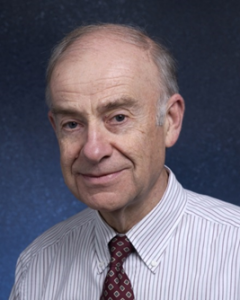INTRAMUROS HIBRIDA 04/07/2024 – CONVIDADO INTERNACIONAL
Data de publicação desta notícia: 04.07.2024A Divisão de Endocrinologia e Metabologia do Hospital das Clínicas da FMUSP
convida para sua Reunião Intramuros Hibrida da Unidade do Laboratório de Hormônios.
Professor, Research Professor and Director, Division of Geriatrics Research,
Southern Illinois University School of Medicine, Springfield, IL
Tema:
“Growth hormone, pace of life and aging”
Abstract: Growth hormone (GH) signaling is importantly involved in the control of mammalian aging. In laboratory populations of mice, hereditary GH deficiency and GH resistance produced by deletion of GH receptors were shown to promote healthy aging and produce remarkable extension of longevity. Conversely, excessive GH signaling in transgenic mice is associated with symptoms of accelerated aging, early onset of age related pathology, and reduced life span. Available evidence suggests that the effects of GH on aging and longevity are mediated by a complex network of interacting mechanisms and include various trade-offs. There are also indications that GH signaling during early life influences adult aging-related traits and longevity. We propose that the impact of GH on aging is due in large measure to its effects of key parameters of the “pace-of-life”, namely rate of growth, age of sexual maturation, and fecundity. The role of the pace of life in the control of aging is supported by results of studies utilizing calorie restriction or pharmacological anti-aging interventions and by comparisons between different mammalian species. Interestingly, association of body size, another GH-dependent trait with longevity, is opposite, rather than consistent in comparisons within and between species. Molecular and cellular mechanism linking pace of life and aging remain to be identified but likely include epigenetic programming and trade-offs in utilizing available energy resources.
LOCAL PRESENCIAL:
TEATRO DA FMUSP
ENDEREÇO: Avenida Doutor Arnaldo, 455, Cerqueira César, 01246-904,
São Paulo, SP. CEP: 01246-904.
Dia: 04/07/2024
Horário: 08:00 às 09:00
Link da videochamada:
https://usp-br.zoom.us/j/81993703927?pwd=N1g5Vm5CdkYvWk9vanoxbC94ZEdWZz09
Orientações:
- Por favor não encaminhe ou compartilhe este link com ninguém.Ao solicitar sua entrada no Meet, se identifique com nome e sobrenome completo, para que você possa ser identificada(o).
- Não será autorizada a entrada de pessoas que não tenham sido convidadas diretamente através deste e-mail de divulgação.
- Envie suas perguntas e comentários através do chat, a qualquer momento durante a apresentação, para que sejam respondidas ao final. Ao conectar, por favor desative o seu microfone e câmera.
A reunião gravada ficará disponível no site:
www.endocrinologiausp.com.br/institucional/reunioes-clinicas/intramuros/
Senha: endocrino.intramuros
APRESENTAÇÃO DA PÓS GRADUAÇÃO
04/07/2024 – 09h00 – APÓS INTRAMUROS
Aluno (a): Augusto Cezar Santomauro Junior
Curso: Doutorado Direto
Orientador (a): Doutorado Direto
Projeto de Pesquisa: Caracterização clínica, laboratorial e radiológica, associada a análise de polimorfismo de nucleotídeo único, (SNPs) de risco
para diabetes mellitus tipo 2, em pacientes com suspeita de clínica de lipodistrofia parcial familiar.

